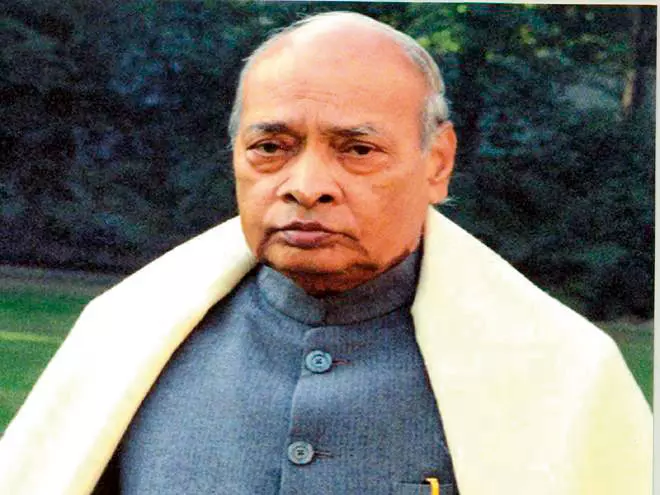DC Edit | Bharat Ratna for Rao, Charan, M.S. laudable

Few stand as tall as Pamulaparthi Venkata Narasimha Rao in Independent India, polyglot, scholar, author, freedom fighter and former Prime Minister. Named Bharat Ratna on Wednesday, he aptly identified as “The Insider” in his own estimation. In an age where politics is a means to acquire money and power, he, having accidentally acquired the latter, used it for the long-term common good and reset the journey of our modern nation, laying the foundations of a liberalised, economically resurgent India.
The Narendra Modi-led government’s decision to confer the Bharat Ratna on P.V. Narasimha Rao posthumously is commendable. So is its decision to name another former Prime Minister and one of the great farmer leaders, Chaudhary Charan Singh, too, as recipient of this honour. One of the early opponents of Jawaharlal Nehru’s socialism in agriculture through collective farming, he played a pivotal role in preventing India from going the Soviet way. He was also responsible for laying the foundations of a farmers’ movement and unleashing their political clout, which continues to resound in Indian politics.
Another person who was conferred the Bharat Ratna on Friday is eminent scientist and father of India’s famed green revolution, M.S. Swaminathan. If Indians are having food on their plate without going to the West with a begging bowl, the credit for it belongs to him.
Whatever be the political motivation behind these awards, it is an unimpeachable truth that Rao’s stellar contribution requires little validation. Except setting the record straight for posterity in the wake of his alleged role in the demolition of the Babri Masjid in Ayodhya. Rao was from a rare crop of politicians who cut their teeth in both philosophy and mass mobilisation. A product of the student movement that asserted their right to sing ‘Vande Mataram’ in Nizam’s Hyderabad, he served the people as a legislator, a parliamentarian and a minister in both the state and Centre.
A reformer at heart, whenever politics catapulted him to a position of power, Rao tried to use it to make people’s lives better. As the chief minister of Andhra Pradesh, he introduced the AP Land Reforms Act to institutionalise the voluntary land redistribution programme espoused by Vinoda Bhave despite anticipating backlash from landlords. This decision helped lakhs of poor landless families have some sort of income security. Though Rao’s tenure as CM was cut short by the Jai Andhra movement with the Congress leadership calling him to work in national politics, it later got him an opportunity to become the architect of modern India.
Narasimha Rao was elected to lead the country in one of the worst geopolitical scenarios. With the dismemberment of the Soviet Union, India was on its own. In such a situation, he fully backed Manmohan Singh in fixing the economy through liberalisation and became the cause of India’s future prosperity. Holding the foreign affairs portfolio himself, he laid the foundation for a new foreign policy based on multi-alignment, which included the Look East policy, dialogue with the West, and normalising ties with Israel. No other Prime Minister in India, other than Jawaharlal Nehru, had got the opportunity to determine the country’s future course as he did. By awarding the Bharat Ratna to a statesman of such stature, the government has lent more glory to the award itself.

